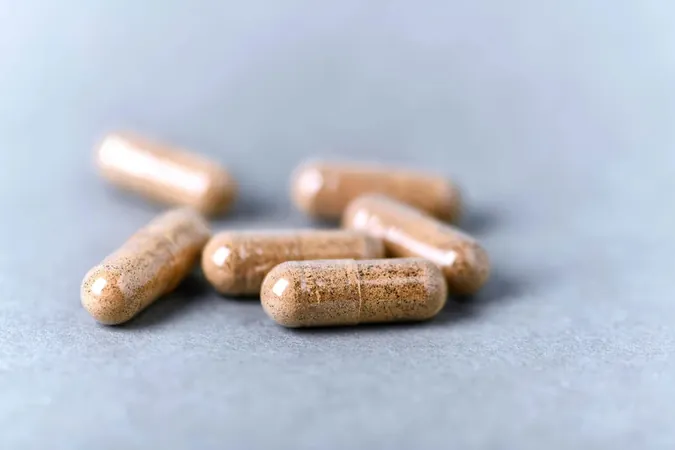
Revelations on the Struggles of HIV-Positive Men: A Deep Dive into Mental Health and Quality of Life
2024-09-27
Introduction
Recent research published in Sexual Medicine has uncovered alarming insights into the health-related quality of life (HRQOL) of men who have sex with men (MSM) living with HIV and experiencing sexual difficulties. The study highlights that these men face significant challenges, with a pronounced impact on their mental health.
Focus on Quality of Life
As antiretroviral therapy extends the life expectancy of people living with HIV (PLHIV), the focus has increasingly turned to understanding the overall quality of life for these individuals. Despite improvements in longevity, many still report a lower HRQOL compared to the general population. One of the key factors contributing to this disparity appears to be sexual function; sexual difficulties among PLHIV are reported to be significantly higher, thus affecting both their psychological well-being and quality of life.
Study Overview
This in-depth study, encompassing data from a longitudinal cohort from January 2017 to December 2021, involved MSM who were diagnosed with HIV and had no severe comorbid conditions. Notably, participants were meticulously screened, ensuring that those with psychological issues prior to their HIV diagnosis or other serious underlying health concerns were excluded.
Methodology
Participants were thoroughly interviewed to gather vital information on various lifestyle factors such as exercise frequency, income, sleep patterns, alcohol consumption, and disruptions to their daily routines. The researchers used established methods to assess mental health and sexual function, including the Symptom Checklist-90-Revised (SCL-90) for psychopathology and the Arizona Sexual Experience Scale for sexual function. Meanwhile, the 36-Item Short Form Health Survey (SF-36) was employed to evaluate HRQOL comprehensively.
Key Findings
Results showed a stark contrast between the two groups within the study: 391 MSM composed a control group, while 84 participants reported experiencing sexual difficulties. Those facing sexual challenges exhibited a notably lower frequency of regular exercise and higher rates of alcohol consumption. On quantifying HRQOL, scores revealed that men with sexual difficulties rated their physical HRQOL significantly lower than their counterparts.
Analysis
Furthermore, a multivariate analysis identified several key independent factors contributing to sexual difficulties, including regular exercise and reduced alcohol intake. Interestingly, while sexual difficulties correlated negatively with physical health scores, no correlation was found between mental health scores (as measured by the SCL-90) and sexual function.
Study Limitations
The researchers acknowledged the limits of their study, including potential biases from relying on a single medical center and the cross-sectional nature of the research, which precludes definitive conclusions about causality. Additionally, they noted the challenges in accurately assessing alcohol consumption levels among participants, alongside a generally low level of reported exercise, which may have confounded outcomes.
Conclusion
In conclusion, the findings shed light on the complex interrelationship between sexual function, mental health, and overall quality of life for MSM living with HIV. The study underscores the imperative for healthcare providers to incorporate assessments of sexual function and psychological health in treatment plans, enabling tailored interventions aimed at improving the quality of life for this vulnerable population.
Call to Action
Don't Miss Out: Discover how lifestyle changes can transform lives!


 Brasil (PT)
Brasil (PT)
 Canada (EN)
Canada (EN)
 Chile (ES)
Chile (ES)
 España (ES)
España (ES)
 France (FR)
France (FR)
 Hong Kong (EN)
Hong Kong (EN)
 Italia (IT)
Italia (IT)
 日本 (JA)
日本 (JA)
 Magyarország (HU)
Magyarország (HU)
 Norge (NO)
Norge (NO)
 Polska (PL)
Polska (PL)
 Schweiz (DE)
Schweiz (DE)
 Singapore (EN)
Singapore (EN)
 Sverige (SV)
Sverige (SV)
 Suomi (FI)
Suomi (FI)
 Türkiye (TR)
Türkiye (TR)